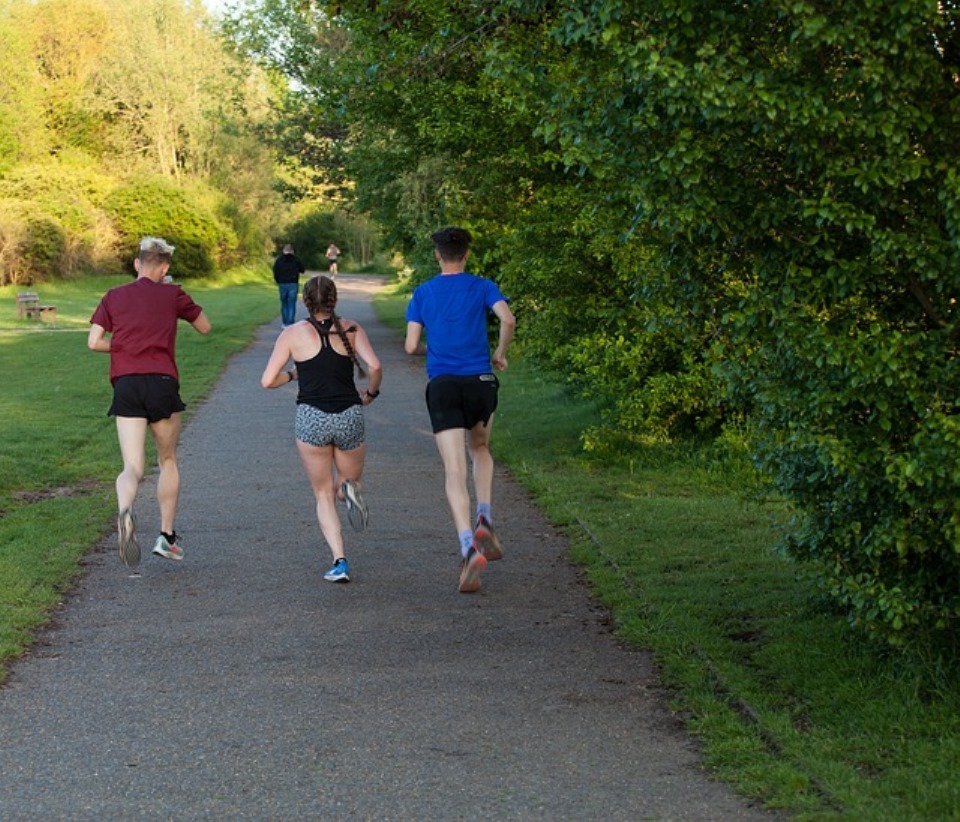
What have you done during quarantine? I have learnt Spanish with P2T. – ¿Qué has hecho durante el confinamiento? (Yo) he aprendido español con P2T.
Some real examples of how to use the Present Perfect to express a past action when there is a connection with the present. – Te mostramos algunos ejemplos de como usar Pretérito Perfecto Compuesto para hablar de una acción sucedida en el pasado, cuando hay una conexión entre esa acción y el momento actual.
If the videos are too quick for you, use the playback speed and captions buttons for slow motion and subtitles. It is advisable that you listen to Spanish people talking. If you are a complete beginner, join our Spanish Lessons and contact Susana for more information +34 661 74 36 45.
1. Conjugación – Conjugation, how do we form it?
COMPOUND TENSES are formed by using the appropriate tense of the auxiliary verb HABER and the past participle. – Los TIEMPOS COMPUESTOS se forman usando el verbo auxilar HABER y el participio pasado del verbo principal.
1.1. Verbos regulares – Regular verbs
The PAST PARTICIPLE is formed by dropping the infinitive ending and adding -ADO to -AR verbs and -IDO to -ER and -IR verbs. – El PARTICIPIO PASADO se forma añadiendo -ADO a la raiz de los verbos terminados en -ar, e -IDO, a los verbos terminados en -er e -ir.

1.2. Verbos irregulares – Irregular verbs
The following verbs have irregular past participles.
| INFINITIVO > PARTICIPIO PASADO | INFINITIVE > PAST PARTICIPLE |
| Abrir > abierto | To open> opened |
| Cubrir > cubierto | To cover> covered |
| Decir > dicho | To say> said |
| Descubrir > descubierto | To discover> discovered |
| Escribir > escrito | To write> written |
| Freir > frito | To fry> fried |
| Hacer > hecho | To do> done |
| Morir > muerto | To die> died |
| Poner > puesto | To put> put |
| Romper > roto | To break> broken |
| Ver > visto | To see> seen |
| Volver > vuelto | To come back> Come back |
1.2. Ejercicio – Exercise
Write these sentences in English using the right past participle – Escribe estas frases en inglés usando el participio pasado apropiado.
- Abrir > abierto ¿Cuándo ha abierto este restaurante? Ha abierto recientemente, pero no sé cuándo exactamente.
- Cubrir > cubierto ¿Has cubierto los muebles antes de cerrar la casa? Si, los he cubierto. Ha sido lo último que he hecho.
- Decir > dicho Perdona, ¿Qué me has dicho? No te he oído.
- Descubrir > descubierto ¿Sabes que han descubierto los científicos? Me parece que han descubierto una vacuna contra el Coronavirus.
- Escribir > escrito ¿Le has escrito ya a tu sobrina? No, todavía no le he escrito. Pero lo voy a hacer hoy sin falta.
- Freir > frito ¿Alguna vez has frito un huevo? No, hoy ha sido mi primera vez. Y no me ha salido muy mal.
- Hacer > hecho ¿Te has hecho ya el análisis de sangre? Si, ya me lo he hecho esta mañana.
- Morir > muerto Oigo las campanas de la iglesia, ¿quién se ha muerto? Se ha muerto el vecino del cuarto hace un rato. (Ha fallecido)
- Poner > puesto ¿Ya has puesto la tele otra vez? Si, pero la puse hace cinco minutos.
- Romper > roto ¿Cuánto tiempo ha estado roto el coche? Ha estado roto desde hace una semana, pero hoy ya funciona otra vez.
- Ver > visto ¿Qué serie has visto este mes? He visto Merlín en Netflix en español
- Volver > vuelto ¿Cuándo has vuelto de Marruecos? He vuelto esta semana.
2. Usos – when do we use it?
2.1. To talk about an action/event beginning in the past and continuing to now. – Para hablar de una acción que comenzó en el pasado y continúa hasta ahora.
Has trabajado muy duro. Ahora puedes tomarte un descanso.
You have worked very hard. You can take a break now.
2.2. To talk about a completed action connected with the present – Para hablar de una acción terminada relacionada con el momento actual.
When the time period has already finished at the time of speaking but just recently. – Cuando el periodo que utilizamos hace poco que ha finalizado.
¿Qué has desayunado esta mañana? (Esta mañana) he desayunado tostadas y (he tomado) un café solo. (Es la una)
What have you had for breakfast this morning? I have had some toasts and a black coffee. (It is one o’clock)
When the time period is not finished at the time of speaking. – Cuando el periodo que utilizamos todavía no ha finalizado.
¿Qué has hecho hoy? (Hoy) he hablado con mi madre (hoy)
What have you done today? I have spoken to my mother today
2.3. To talk about past actions/events when the result is interesting now, but the exact time of the event is not important. – Para hablar de acciones que sucedieron en el pasado, cuando lo que nos importa no es el “cuando” sino el “resultado actual”.
When the time when the action took place is of no importance. What is important is the consequence or what is going on at the moment.
Qué ha pasado? He perdido mis llaves y no puedo abrir la puerta.
What has happened? I have lost my keys. I can’t open the door.
Lucas ha comprado chocolate. (Ahora tiene chocolate.)
Lucas has bought some chocolate. (He’s got some now.)
2.4. To tell “how long” an action has last – Para hablar sobre cuanto tiempo ha durado una acción.
He vivido en Murcia desde 2018, pero a partir de mañana voy a vivir en Alicante.
I have lived in Murcia since 2018 but from tomorrow I am going to live in Alicante.
2.5. To ask “have you ever…”? – Para preguntar ¿”alguna vez …”?
¿Alguna vez has jugado al baloncesto? /¿Has jugado al baloncesto alguna vez?
Have you ever played basketball?
3. DIFERENCIAS CON EL INGLÉS – DIFFERENCES WITH ENGLISH
3.1. We do NOT use it to ask for How long..?, we use the present. – No lo usamos con “Cuánto tiempo…” usamos el presente.
In English, the present perfect is used to ask for “How long….?”. However, in Spanish, the present is used. To answer this question, the present is used if the situation is going to continue in future or the present perfect if it is going to change. – En inglés, se usa el pretérito perfecto compuesto para preguntar por “¿Desde cuando….?” Sin embargo, en español se usa el presente. Para responder a esta pregunta usaremos el presente, si la situación va a continuar en el futuro, o el pretérito perfecto compuesto en caso de que la situación vaya a cambiar pronto.
¿Desde cuándo conoces a María? La conozco desde abril.
How long have you known María? I’ve known her since April.
3.2 We do not use it with “just”, we use the present. – No lo usamos con “acabar de” usamos el presente.
(Yo) acabo de romper un vaso.
I have just broken a glass.
3.3 With “this is the first time”, we use the present or the present perfect. – Con “esta es la primera vez que” normalmente usamos el presente, aunque también se puede usar el pretérito perfecto compuesto.
Esta es la primera vez que abro / he abierto un negocio online
This is the first time I have opened a business online
Example -ejemplos:
¿Desde cuándo vives en Murcia? Vivo en Murcia desde hace un año, y espero seguir viviendo aquí más tiempo.
How long have you lived in Murcia? I have lived in Murcia for a year, and I do not have plans to move.
Si, acabo de mudarme!!!!
Yes, I have just moved.
No vivo en Murcia. De hecho, es la primera vez que vengo a Murcia.
I do not live in Murcia. In fact it is the first time I have visited it.
4. Marcadores temporales – time expressions
–Time period is not finished: Esta mañana-this morning, esta tarde-this afternoon, esta noche-this evening, tonight, hoy-today, esta semana-this week, este mes-this month, este año-this year…
– Specific expressions: Ya-already, aún no – todavía no-not yet, alguna vez-ever, nunca- never, hasta ahora-so far, till now, hasta la fecha-up to now, últimamente-of late, lately recientemente-recently, desde hace+periodo de tiempo hasta ahora-for+length of time to now, desde+momento exacto antes de ahora-since+exact time before now, hace un rato, hace un momento, hace poco-a while ago, siempre-always….
He vivido en Murcia desde 2018, pero a partir de mañana voy a vivir en Alicante.
I have lived in Murcia since 2018 but from tomorrow I am going to live in Alicante.
He vivido en Murcia desde hace hace dos años, pero a partir de mañana voy a vivir en Alicante.
I have lived in Murcia for two years but from tomorrow I am going to live in Alicante.
¿Siempre has vivido en España? No, no he vivido siempre en España
Have you always lived in Spain? No, I have not always lived in Spain
No, todavía no me he mudado / No, no me he mudado todavía.
No, I have not yet moved.
Si, ya me he mudado, ya vivo en Murcia / Si, me he mudado ya.
Yes, I have already moved, I already live in Murcia.
No, aún no me he mudado / No, no me he mudado aún.
No, I have not moved yet.
4.1. Ejercicio – Exercise
Write these sentences in English using the given time expressions – Escribe estas frases en inglés usando las expresiones de tiempo dadas.
- Esta mañana he desayunado tostadas y un café solo. – This morning
- Esta tarde hemos empezado a caminar de 5 a 6. – This afternoon
- Esta noche hemos quedado con unos amigos – This evening, tonight
- Hoy María se ha comido todo el chocolate – Today
- El nuevo estudiante ha llegado esta semana. – This week
- Este mes hemos visitado varios museos en Madrid.- This month
- Este año he visto la televisión en español- This year
- Va a llover, ¿has cubierto la mesa con un plástico ya? – Already
- Si, ya lo he hecho – Already
- No, aún no lo he hecho. Voy ahora mismo. – Not yet
- No, todavía no me ha dado tiempo. – Not yet
- ¿Alguna vez has estado en la Alambra? – Have you ever…?
- No, nunca he estado en la Alambra – No, I have never…
- No, hasta ahora no he tenido la oportunidad. So far, till now
- Te he dicho que hasta la fecha no he recibido la factura- Up to now
- Últimamente mi marido y yo hemos empezado a ir al gimnasio cada mañana – Of late, Lately
- Recientemente se ha escrito mucho sobre los virus – Recently
- Mi nieto ha estado fuera desde enero – Since
- No hemos vivido en este piso desde hace dos años – For
- Mi hermana ha frito las croquetas hace un rato- A while ago
- Mi amiga me ha llamado hace un momento-A while ago
5. Ejercicios – Exercises
5.1. Ejercicio – Exercise:
Translate this dialogue into Spanish and continue it– Traduce este diálogo a español y continúalo.
A: Hi, Carla. It’s Jake.
B: Jake! I have not heard from you for two weeks. How are you?
A: Not very good actually.
B: Why what has happened?
A: I have had an accident and I have broken my leg because I had forgotten to put my helmet on.
B: I hope you “have learnt your lesson”
5.2. Ejercicio – Exercise:
Answer these questions for each of the photos. *Note: there is a list of verbs at the end of the page – Responde a estas preguntas para cada una de las fotografías. *Nota: hay un listado de verbos al final de la página:
- ¿Qué ha hecho (él/ella) esta mañana? Él/ella ha…. porque….
- ¿Qué han hecho (ellos/ellas) hoy? Ellos/ellas han…. porque…
- What has he/she done this morning? He/she has…. because….
- What have they done today? They are… because….
- ¿Han empezado ya? Si, ya han empezado la carrera.
- Él…
- ¿Han terminado de cocinar ya? No, todavía no han terminado
- Él…
- Ella…
- Ella…
- Ellos…
- Ella…
- Ellos…
- Ella…
- ¿María ha fumado alguna vez? No, hoy es/ha sido su primera vez.
- Ellos…
Nota: Los siguientes verbos te pueden ayudar a completar las frases: jugar al ajedrez / fumar / comer / pasear / correr / escalar / escuchar música / dormir / montar en bici-hacer ciclismo / cocinar / conducir / leer
Note: The following verbs can help you complete the sentences: TO… play chess / smoke / eat / walk / run / climb / listen to music / sleep / ride a bicycle-cycle / cook / drive / read
5.3. Ejercicio – Exercise:
Translate these sentences into English, pay attention to the tenses used. some of them are different in English and in Spanish. Traduce estas frases al inglés, presta atención al tiempo verbal usado. Algunos no coinciden en inglés y en español.
- Abrir > abierto ¿Cuándo ha abierto este restaurante? Creo que abrió hace dos semanas.
- Abrir > abierto ¿Cuánto tiempo lleva abierto este restaurante? Lleva abierto dos semanas.
- Cubrir > cubierto ¿Has cubierto los muebles antes de cerrar la casa? Si, los cubrí ayer.
- Romper > roto ¿Cuánto tiempo lleva roto este coche? Lleva/está roto desde hace una semana. – It has been broken
- Romper > roto ¿Cuándo se rompió el coche? Se rompió hace una semana.
- Volver > vuelto ¿Cuándo has vuelto de Marruecos? Volví la semana pasada.
6. SIMPLE PAST VS. PRESENT PERFECT – PASADO VS PRETÉRITO PERFECTO COMPUESTO
- He trabajado aquí desde 2010.
- I’ve worked here since 2010 (since + a point in the past, 2010)
- He trabajado aquí desde hace 10 años.
- I’ve worked here for 10 years (for + a length of time, 10 years)
- Empecé este trabajo en 2010 (el lunes, a las cinco)
- I started this job in 2010 (a point in the past, in 2010, on Monday, at 5 o’clock)
- Empecé este trabajo hace 10 años.
- I started this job 10 years ago (a length of time, 10 years + ago)
6.1. Ejercicio – Exercise:
Translate these sentences into Spanish. Use the appropriate tense in each case. – Traduce estas frases a español. Utiliza el tiempo verbal adecuado en cada caso.
- I started this job in June
- I’ve worked here since June.
- We bought this car five months ago.
- We’ve had this car for five months.
- Ali left here on Tuesday.
- I haven’t seen Ali since Tuesday.
- I haven’t lived in that flat for two years.
- I left that flat two years ago.
And remember!! Practice makes perfect
Come to practise with Spanish native speakers in our >> Off The Cuff Talks! << be brave and ask them ¿Qué estás haciendo?
Did you find it useful? Then, please… FEEL FREE TO SHARE IT!
Do you have any doubts or even a contribution? Please fill out the form at the bottom, and we will get back to you asap⏬
Join our Spanish lessons in Torre de la Horadada, San Javier, Mar Menor Golf Resort and Sucina (Casas Blancas)
This is just a small example of what you can learn. Get the support of the best Spanish Tutor in the area, Susana Romero, and enjoy learning Conversational Spanish.












